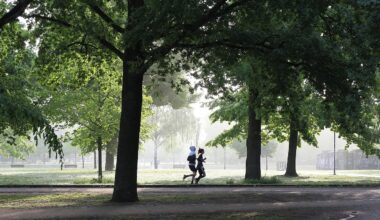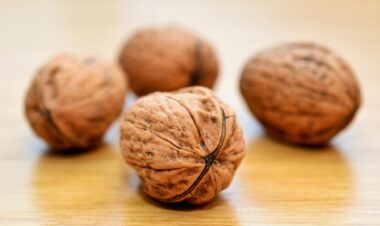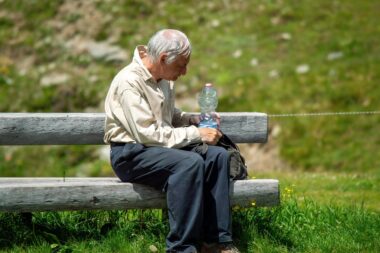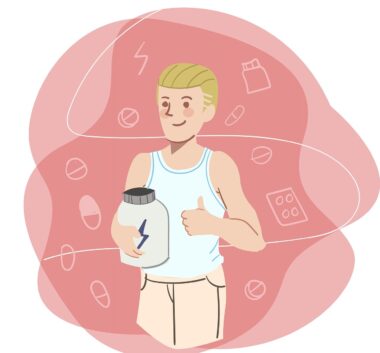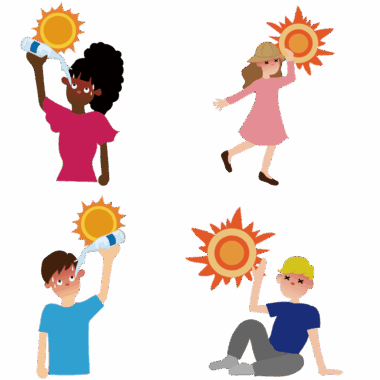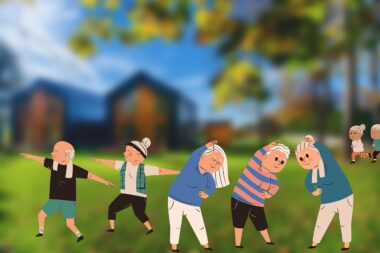Introduction to Personalizing Nutrition
Sports nutrition is crucial for everyone, but especially so for seniors. As individuals age, their nutritional needs evolve, requiring tailored approaches to maintain health and vitality. A well-structured nutrition plan is vital for seniors, directly influencing their energy levels, muscle strength, and overall well-being. It is essential to recognize how aging affects metabolism, appetite, and nutrient absorption. Additionally, seniors often experience varying levels of mobility, which can further impact their dietary requirements. This necessitates a personalized approach to sports nutrition that takes into account these unique challenges. Collaboration with healthcare professionals, nutritionists, or experienced trainers can significantly enhance the development of individualized plans. Furthermore, it is important to consider personal preferences and dietary restrictions when creating a sports nutrition plan. This personalized approach not only ensures that seniors receive the right nutrients but also keeps them motivated and engaged in their nutrition. In the upcoming sections, important strategies for personalizing sports nutrition plans for seniors will be detailed to provide actionable insights and effective practices.
Understanding Nutritional Needs
As seniors engage in physical activity or sports, understanding their unique nutritional needs becomes paramount. Aging affects muscle mass and bone density, highlighting the need for nutrient-dense, high-quality foods to maintain health and vitality. Protein intake is particularly essential, as it supports muscle repair and growth, which decreases with age. Adequate calcium and vitamin D are crucial for bone health, reducing osteoporosis risk which becomes increasingly important as one ages. Seniors should aim for balanced meals that include carbohydrates for energy, healthy fats for heart health, and various vitamins and minerals. Additionally, hydration is often overlooked but is critical for optimal performance and overall health. Many older adults may not feel thirsty, which leads to dehydration. Therefore, emphasizing the importance of fluency in hydration habits is essential. It may be beneficial to remind seniors to drink water consistently throughout the day. Regular assessments of dietary habits are fundamental to identify any nutritional gaps. Tailoring sports nutrition according to personal health goals can significantly impact seniors’ sports performance and daily functional abilities.
When crafting personalized nutrition plans, it’s essential to incorporate seniors’ favorite foods alongside recommended options. This balance encourages adherence to the plan, as individuals are more likely to stick to meals that they enjoy. Furthermore, offering a variety of flavors and textures can make meals more appealing and prevent monotony. It is also helpful to use simple cooking methods that seniors can easily manage, such as steaming, grilling, or baking, which preserve nutrients better than frying. Portion control should also be considered, as seniors may require smaller, more frequent meals rather than standard-sized portions. Providing meal options that are visually appealing can help to stimulate appetites, improving overall nutrition. It’s also vital to monitor any dietary restrictions and food allergies, ensuring the nutrition plan remains safe and appropriate. Nutritional education should focus on teaching seniors about their food choices and the benefits associated with each nutrient, empowering them to make informed decisions. Engaging seniors in meal preparation can foster a sense of accomplishment and community, ultimately contributing to a healthier lifestyle.
Addressing Common Nutritional Challenges
Common challenges in adopting sports nutrition for seniors include limited access to fresh foods, physical mobility constraints, and dietary restrictions. Many seniors face financial constraints that directly impact their ability to purchase nutritious foods. Local food assistance programs, community gardens, and farmer’s markets can assist in bridging this gap by offering affordable options for fresh produce. Additionally, as mobility restrictions may hinder grocery shopping, online grocery deliveries or meal kit services tailored to seniors can enhance access to nutritious foods. Educational workshops focused on nutrition can empower seniors with knowledge and cooking skills, enhancing their ability to prepare healthy meals. Exploration of adaptive kitchen tools can also assist seniors in meal prep, promoting independence. For those with specific dietary restrictions like diabetes or heart issues, personalized nutrition plans should incorporate safe and suitable food choices. Regular consultations with a nutritionist can help address these challenges, providing seniors with the necessary resources and knowledge to overcome obstacles. Overall, addressing nutritional challenges is essential for developing effective sports nutrition plans that encourage an active and healthy lifestyle.
Incorporating supplements can play a vital role in enhancing the overall nutritional intake of seniors engaged in sports. However, this should be approached with caution and ideally under the guidance of a healthcare professional. Key supplements to consider include protein powders, omega-3 fatty acids, and multivitamins tailored for seniors. Protein powders can aid in meeting daily protein requirements, especially if appetite fluctuates. Omega-3 fatty acids are beneficial for maintaining heart health and decreasing inflammation, which is essential for recovery after exercise. Multivitamins can provide micronutrients that might be lacking in a senior’s diet, thus complementing their nutritional intake. It’s crucial to assess whether supplements are necessary by evaluating dietary habits and discussing with healthcare providers before making changes. Furthermore, seniors must be encouraged to prioritize whole foods before resorting to supplements. Whole foods often provide additional benefits such as fiber, which supplements may lack. The general rule of thumb is that food sources should always be the primary choice, with supplements used only as a secondary measure to fill nutritional gaps.
Engagement and Support Systems
Establishing a support system can greatly enhance the effectiveness of personalized sports nutrition plans for seniors. Family members, caregivers, or community representatives can play a significant role in motivating seniors to adhere to their plans. Encouraging participation in group activities, such as cooking classes or eating out as a group, can foster a sense of belonging while sustaining interest in healthy eating. Engaging older adults in social dining settings can enhance their enjoyment of meals, leading to better nutrient intake. Creating accountability groups that focus on nutrition can be beneficial, allowing seniors to share successes and challenges along their journey. Additionally, technology can aid in fostering connections; apps designed for meal planning or tracking nutritional intake can keep seniors motivated. It’s also valuable to celebrate achievements, no matter how small, to reinforce positive behavior. Regular open discussions about nutrition can help seniors feel empowered and supported in their decisions. An engaged community can be pivotal in ensuring that personalized sports nutrition plans are not only effective but also enjoyable.
Finally, continuous assessment and adjustments are necessary for successful sports nutrition plans for seniors. Regular evaluations can help to determine if the nutrition plan is meeting an individual’s changing needs and goals. Factors such as changes in health status, physical activity levels, and food preferences should prompt a reassessment of the nutrition strategy. Keeping a nutrition diary could be a beneficial way for seniors to monitor their food intake and physical activity, serving as a helpful tool to identify trends and areas for improvement. Feedback from seniors regarding their meal satisfaction and energy levels is also invaluable in this process. Initiating discussions about what works and what could be improved fosters a collaborative approach between seniors and their nutrition coaches or healthcare providers. By acknowledging that nutritional needs will evolve over time, the focus should remain on flexibility and adaptability. The ultimate goal is to ensure that seniors feel physically fit, energized, and confident in their dietary choices, leading to enhanced participation in sports and a more active lifestyle.
Sports nutrition for seniors must be thoughtfully addressed in order to prioritize health and ensure functionality throughout the aging process. Engaging in physical activity is essential, but without proper nutrition, seniors may struggle to achieve desired outcomes. A personalized sports nutrition plan should focus on inclusive dietary practices that cater to individual dietary restrictions, preferences, and cultural backgrounds. This approach ensures a pragmatic focus on overall health while showcasing the importance of enjoying healthy foods. It is also beneficial to integrate foods rich in antioxidants, such as fruits and vegetables, to combat oxidative stress and support overall vitality. Furthermore, recognizing how different nutrients work together will help seniors make informed choices that optimize their sports performance. By focusing on a whole-foods approach that balances macronutrients and micronutrients, seniors will reap the benefits in their daily activities and sports. The implementation of small, achievable goals can foster a sense of accomplishment, motivating continual improvement. Social aspects of food must not be overlooked, especially for seniors; sharing meals can create opportunities for rebuilding social connections, ultimately enhancing adherence to sports nutrition plans.

